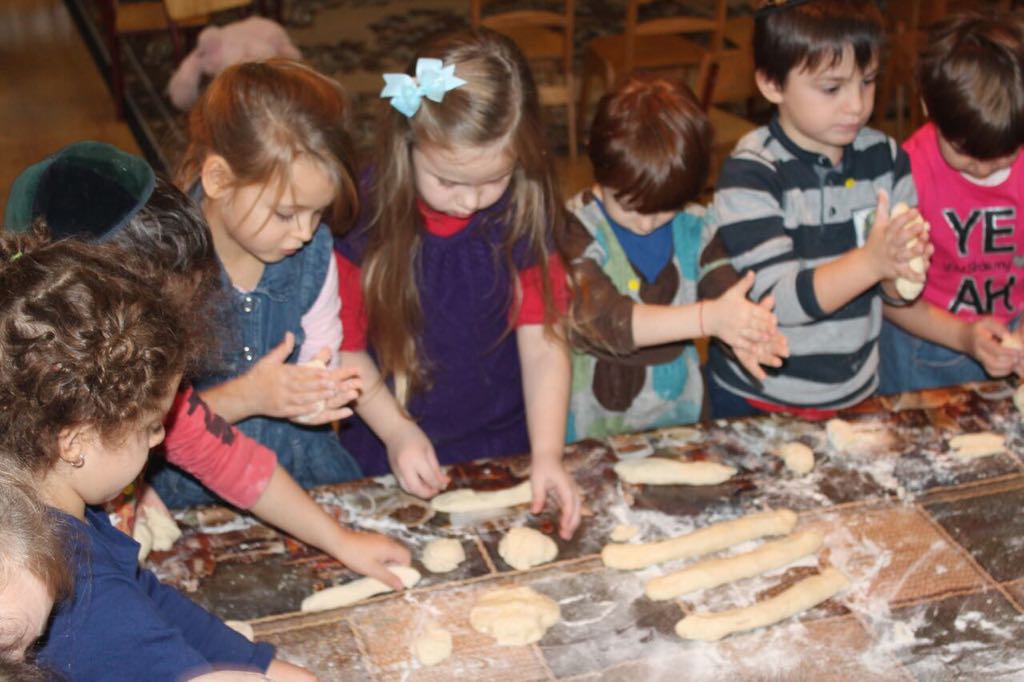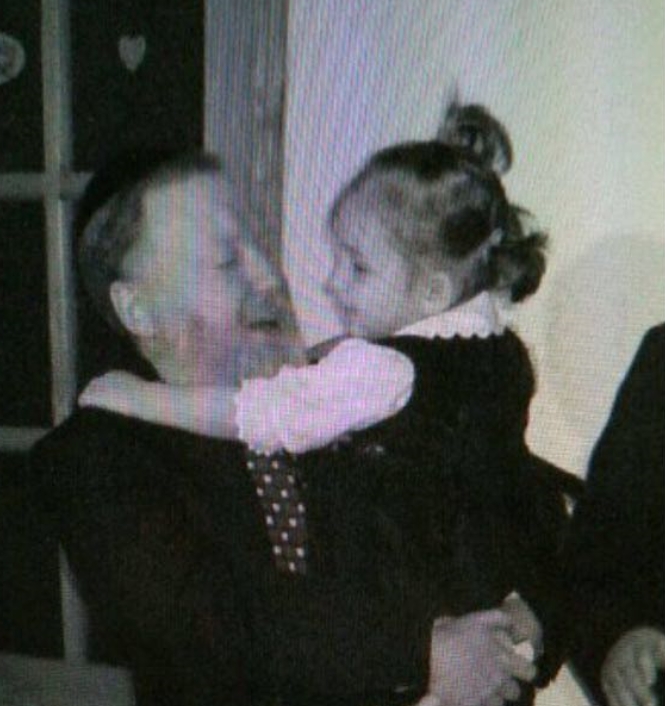Hassia Bakshat: 'Some Orphans We Found on Odessa Streets Are Now Yeshiva Students in Israel'
For 24 years, Rabbi Shlomo Bakshat has been revitalizing the Jewish community in Odessa, which now boasts of hundreds of families and numerous institutions, including a unique orphanage where many of the children do, in fact, have parents. In a special interview, Odessa's Rebbetzin Hassi Bakshat talks about the challenges and the satisfaction.
 Children from the orphanage at summer camp
Children from the orphanage at summer campFor eight out of the 24 years her husband has served as the rabbi of the Odessa community, Hassi Bakshat lived in Israel with their children. During those years, the family mostly met on holidays when they all flew to Ukraine, and every fifth Shabbat when Rabbi Bakshat came to Israel to be with his family. When asked how she coped with such difficulty, she claims there is no question about it. Each time she arrived in Odessa and saw how much the community had advanced since her last visit and how abandoned orphaned children had become integrated and started learning Torah, the hardship diminished compared to the joy and fulfillment.
She clarifies that she hasn't always been such a hero. When she and her husband prepared 24 years ago to fly to Odessa on a mission from an American foundation to restore communities in the former Soviet Union, her friends were openly skeptical. 'I grew up in a pampered American home, and my friends always said I had not been born with a silver spoon in my mouth, but with an entire golden ladle. They were sure I wouldn't last and would quickly flee backward Ukraine.'
In Odessa, the couple discovered a dilapidated synagogue attended by only a few elderly people. To bring the younger generation back to Judaism, within a year, they established a boys' school with 67 students. The following year, they opened a girls' school with 60 students. From this modest start, a genuine Jewish education empire branched out: today, the Odessa community has three elementary schools, two high schools, a Beit Yaakov, a Cheder, kindergartens, and even a university for the community, attracting students from across the former Soviet Union. The community comprises several hundred families and features a large central synagogue, two mikvahs, kollels both for scholars and householders, bakeries, kosher restaurants, and even a glatt kosher shawarma and falafel stand.
 Activity time at the orphanage
Activity time at the orphanageThe crown jewel of the community, or at least the institution that garners the most attention, is the 'Tikva' orphanage. The orphanage, featured in a documentary by media personality Miki Haimovich two years ago, is where hundreds of Jewish children gather, with no one else to care for them. Some are genuinely orphaned, but many have alcoholic, non-functional, or impoverished parents. At 'Tikva,' they receive living conditions far superior to governmental orphanages, warmth and love in abundance, and, of course, a Jewish religious education.
'There are children we find on the street, literally,' Hassi says. 'And there are children whose parents themselves bring them to us while they are still babies. In the program made about us, you can see a boy named Kola, whose mother lives in great poverty, so she sent him to the orphanage, visiting rarely. Recently, his mother had a baby girl, and at four days old, she already brought her to the orphanage... that’s how it is when the government offers generous birth grants but not generous support for raising the children. Kola, by the way, is just thrilled with his new sister. He even ran to show her to everyone who came.'
Like all major projects in Odessa, the orphanage had humble beginnings. 'It began when Sasha—now our main child locator—contacted my husband. He worked at a governmental orphanage then and saw missionaries forming connections with children, including Jewish children. My husband told him to bring them to us for Shabbat. Sasha was astonished at our intention to compete with the abundance and gifts showered by the missions, but my husband said a Jewish child would always feel more at home with us on Shabbat.'
Today, as mentioned, it is a large orphanage striving to raise the children to become functioning adults who will establish normal families. 'We have psychologists, a caring staff, we do everything to ensure they grow well despite their baggage and past. It is crucial to us that every child finds their place in the world.'
Have non-Jews ever tried to place their children in your orphanage? The conditions you offer are certainly attractive.
'They tried, but we have advanced equipment, worth thousands of dollars, for detecting forgeries. We also have a team of 13 people dealing with verifying Jewishness. Be it in Israel, the U.S., or Germany—anyone coming with a Jewry certificate from my husband, Rabbi Bakshat, is accepted without questions. Everyone knows we investigate each individual's background thoroughly.'
 Rabbi Bakshat with an orphanage child
Rabbi Bakshat with an orphanage childAren't you worried about concerns of *mamzerut*?
'Rabbi Elyashiv, of blessed memory, ruled we need not worry about that; it is too remote a concern.'
Sending the children to Israel in their childhood is not possible, given Ukraine's stringent laws. However, when they reach adolescence, most orphanage children choose to immigrate to Israel. 'We have a multitude of children in Israel, in the most prestigious yeshivas and seminaries,' says Bakshat with satisfaction. 'One young man who grew up in our orphanage now serves as a community rabbi in the north. When I am in Israel, I get to see a lot of *nachas*. Last week I visited a student from Hebron Yeshiva who has built a wonderful family. A few weeks ago, I traveled to the *chalakeh* of a son of a girl from the orphanage in Afula. Not long ago, I attended a Bat Mitzvah of one of the 'House of Odessa' granddaughters as the maternal grandmother, and soon I will be 'Odessa Grandma' at the eighth-grade graduation at Beit Yaakov... There is generally a strong bond among all community exiles in Israel united under 'Tikva Israel.'
Even today, Hassi Bakshat continues to alternate between Israel and Odessa. Some years, she spends most of her time there ('There was a year I taught three classes simultaneously and once had to prepare lessons by lantern light because there was no electricity'), and some years, she stays in Israel, focusing on lectures to raise awareness and understanding about Eastern European expats in Israel. When she talks to me, she is precisely en route to the airport to fly again to Odessa to celebrate Shavuot with the community.
After so many years, don’t you feel worn out? Don’t you run out of strength?
'No,' she smiles. 'What gives me the most strength is the fact that my husband, thank Hashem, has always continued to study Torah with full vigor alongside handling community affairs. As one of my children once said when he was little to someone he met who asked what his father does: 'My dad studies—and when he has time, he is also the rabbi of Odessa'...

